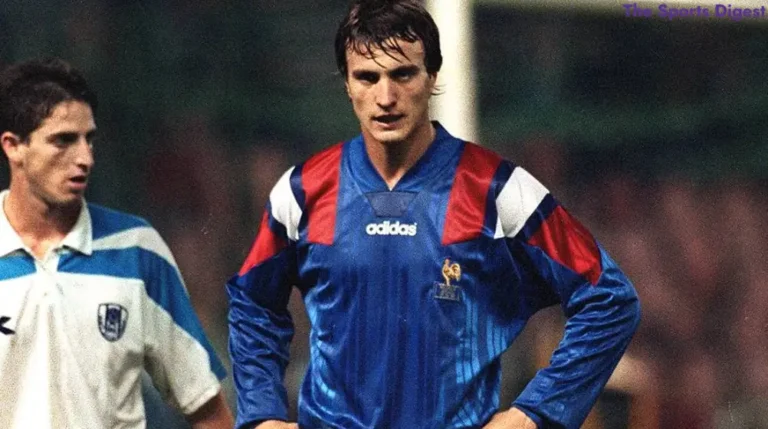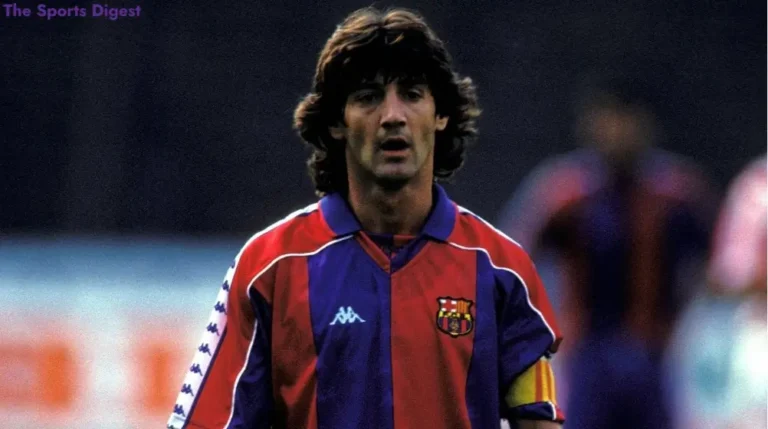Eric Cantona: A Life of Loneliness and Love
The story of Eric Cantona begins with a powerful anecdote from 1978 in Marseille. During a crucial youth match, a seemingly simple act of untied bootlaces would become a metaphor for his entire career. This moment of perceived injustice – preventing a potential title-winning goal for AS Caillolais – captured the essence of Eric Cantona: passionate, skilled, and uncompromising.
Table of Contents
Early Years and Formative Experiences
Eric Cantona’s journey in football was far from smooth. He faced numerous obstacles early on, being rejected by prominent local clubs such as Olympique de Marseille and OGC Nice. However, he eventually found his true home at Association de la Jeunesse Auxerroise (Auxerre) under the guidance of the renowned coach Guy Roux. Roux quickly recognized that Cantona was not just a talented player but also a complex personality that required careful management. In the nurturing environment of Auxerre, Cantona was able to refine his skills and express his strong character on the pitch. This crucial phase of his career laid the foundation for his transformation into one of the most influential figures in French football history.
At Auxerre, Eric Cantona experienced a “phenomenal athletic growth spurt.” He won the Coupe Gambardella and excelled with the national under-17 side, scoring a memorable winner in a World Cup warm-up match. Roux’s unique approach – pitting youth teams against tough third-division opponents – helped Cantona develop resilience and skill.
The Turbulent Professional Path
His early professional years were marked by volatility. Loan moves to Martigues and later to Marseille were complicated by his “haughty demeanour” and explosive temperament. At Montpellier, he even physically attacked teammates, earning a reputation as an “uncontrollable Tasmanian Devil.”
A defining moment came when he publicly insulted national team manager Henri Michel, calling him “a bag of shit” after being rested from a friendly. Yet, beneath this volatile exterior, mentors like Gérard Houllier saw his “extreme professionalism and drive.”
The English Transformation
The move to England proved transformative. Initially signed by Leeds United, Cantona’s impact was immediate. Though he scored modestly, his “invention and charisma” helped the team win the league title in 1992. His true destiny, however, awaited at Manchester United.
Alex Ferguson’s £1.2 million acquisition would change football history. Eric Cantona wasn’t just a player; he was a phenomenon. He brought “panache” to the team, raising the performance of his teammates and embodying a style that resonated deeply with United fans.
The Selhurst Park Incident and Redemption
In January 1995, Cantona’s career hung in the balance. His attack on Crystal Palace fan Matthew Simmons threatened to destroy everything he had built. Yet, Manchester United’s unwavering support, particularly Ferguson’s personal intervention in Paris, prevented his potential move to Inter Milan.
His return against Liverpool at Old Trafford was electrifying. The stadium buzzed with an energy unseen in 20 years, symbolizing the “unquestioning, unswerving mutual devotion” between Eric Cantona and the fans.
Artistic Integrity and Retirement
As his playing years waned, Eric Cantona passion began to shift. Missing out on the Euro 96 squad led him to explore other interests, particularly in the arts. His retirement at the end of the 1996/97 season was not a defeat, but a deliberate choice – “staying loyal to the art of performing.”
Legacy of Belonging
Cantona’s story is ultimately about belonging. He felt more English than French when hearing “God Save The Queen,” capturing the rebellious spirit and love of football that defined his career. His legacy is beautifully captured in a quote from Ken Loach’s “Looking for Eric”: “I’m so proud they still sing my name, but I fear tomorrow they will stop. I fear it because I love it.”
In the end, Eric Cantona achieved something rare: the “purest emotions of belonging” – transcending the typical narrative of a footballer to become a cultural icon who represented more than just a game.
Have you ever read an article like this?
There are no reviews yet. Be the first one to write one.






